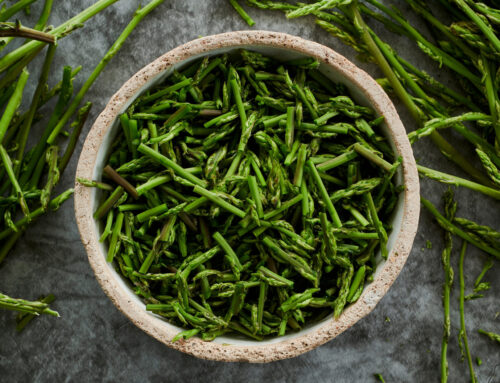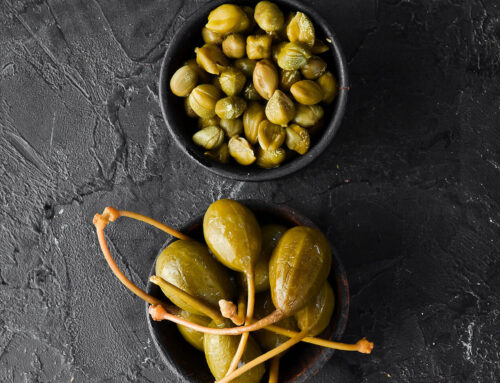Moustalevria: A Nutritious and Traditional Greek Superfood
Moustalevria, a sweet and nourishing dessert, has been enjoyed in Greece since ancient times. Made from freshly pressed grape must, flour, and natural sweeteners, moustalevria is a rich and wholesome treat that showcases the versatility and nutritional benefits of grapes.
Moustalevria: A Celebration of the Grape Harvest
Moustalevria is traditionally prepared during the grape harvest season as a way to celebrate and make use of the abundant grape must. The preparation of moustalevria involves simmering grape must with flour, sweeteners such as honey or grape molasses, and aromatic spices like cinnamon and cloves until it reaches a thick, pudding-like consistency. The dessert is then allowed to cool and set before being served, often garnished with chopped nuts or sesame seeds.
Nutritional Profile
Moustalevria is a nutrient-dense dessert, providing a rich source of vitamins, minerals, and antioxidants derived from grapes. Grape must is abundant in polyphenols, which have been linked to numerous health benefits, such as reduced inflammation, improved heart health, and protection against chronic diseases. The use of whole-grain flour and natural sweeteners in moustalevria further enhances its nutritional value, offering a more healthful alternative to refined and processed desserts.
Health Benefits
The consumption of moustalevria has been associated with several health benefits, including:
Antioxidant Protection
The polyphenols in grape must help combat oxidative stress, protecting the body against cellular damage and chronic diseases.
Heart Health
The nutrients and antioxidants in moustalevria may contribute to improved heart health by reducing inflammation, regulating blood pressure, and improving blood vessel function.
Digestive Health
The fiber content of whole-grain flour used in moustalevria supports healthy digestion and may help prevent constipation.
Culinary Traditions and Innovation
Moustalevria is a dessert that bridges the gap between tradition and innovation. Its ancient origins and enduring popularity attest to its cultural significance in Greek cuisine, while its versatility allows for creative reinterpretations and adaptations. Modern chefs and food enthusiasts are experimenting with different flavor combinations, alternative flours, and innovative presentation techniques to elevate moustalevria to new culinary heights.
Supporting Local Producers and Sustainable Practices
The preparation of moustalevria is deeply rooted in the Greek agricultural landscape, as it relies on the use of fresh, locally-sourced grape must. By choosing to enjoy moustalevria and supporting local grape producers, you can help preserve traditional cultivation practices and contribute to the sustainable development of the Greek agricultural sector. When purchasing ingredients for moustalevria, consider opting for organic or sustainably-produced products, which not only benefit your health but also support environmentally-friendly practices.
Moustalevria in Seasonal and Festive Occasions
Moustalevria holds a special place in Greek culture, as it is often associated with seasonal and festive occasions, such as the grape harvest and religious celebrations. By preparing and enjoying moustalevria during these events, you can connect with Greek culinary traditions and create memorable experiences with family and friends.
Moustalevria and Wine Pairings
Given its grape-based origins, moustalevria pairs exceptionally well with various Greek wines, enhancing the flavors and aromas of both the dessert and the accompanying beverage. When choosing a wine to serve with moustalevria, consider opting for a complementary Greek wine, such as a sweet Muscat or a rich Mavrodaphne, which can enhance the dessert’s fruity and aromatic qualities.
Moustalevria and Greek Gastronomy
Moustalevria is an emblematic example of Greek gastronomy’s ability to combine simple, high-quality ingredients to create dishes with complex flavors and textures. The dessert’s reliance on grape must, a byproduct of the winemaking process, demonstrates the resourcefulness and sustainability at the heart of traditional Greek cooking practices.
Moustalevria is a flavorful and nourishing Greek superfood that showcases the versatility and nutritional benefits of grapes. By understanding its distinct properties, culinary traditions, and innovative potential, you can fully appreciate the role of moustalevria in Greek culture. Culinary arts students, chefs, researchers, and food enthusiasts can all benefit from embracing this antioxidant-rich, healthful dessert in their cooking and dietary practices, adding a touch of Greek tradition and nourishment to their meals. Supporting local producers and sustainable practices ensures the continuation of this ancient dessert and its positive impact on Greece’s agricultural heritage and local communities.



